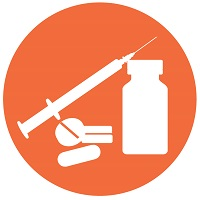Back
Clinical Pharmacology – Biomolecular
Session: Symposium: Translational Biomarkers: From Bench to Bedside (BM)
Biomarkers for Oncolytic Viruses and Intratumoral Immunotherapy
Wednesday, October 19, 2022
10:00 AM – 10:30 AM ET
Location: 152

Howard Kaufman, MD
Clinical Associate/Lecturer/CEO
Massachusetts General Hospital/Harvard Medical School/Ankyra Therapeutics
Boston, Massachusetts
Speaker(s)
This 30-minute presentation is one of the four presentations in a two-hour symposium, which is proposed by Drs. Yow-Ming Wang and Xiaofei Wang. The title of the two-hour symposium is Biomarkers for Cancer Immunotherapy.
Intratumoral immunotherapy is an emerging therapeutic strategy designed to deliver immunologically active drugs directly into an established tumor. This strategy can increase the therapeutic window for drug delivery by promoting drug biodelivery while limiting systemic toxicity. This approach is best characterized by oncolytic viruses which exhibit tumor cell selective replication and induce immunogenic cell death. While intratumoral delivery offers certain pharmacologic benefits, there are logistical challenges. Thus, having predictive biomarkers to guide patient selection and guide dosing, scheduling and combination regimens would be helpful. In this presentation we will review the difference between intravenous and intratumoral delivery of oncolytic viruses and other intratumoral immunotherapy drugs. We will also describe recent progress in biomarker discovery and define high priorities for further investigation to optimize the therapeutic benefit of intratumoral immunotherapy for patients with cancer.
Intratumoral immunotherapy is an emerging therapeutic strategy designed to deliver immunologically active drugs directly into an established tumor. This strategy can increase the therapeutic window for drug delivery by promoting drug biodelivery while limiting systemic toxicity. This approach is best characterized by oncolytic viruses which exhibit tumor cell selective replication and induce immunogenic cell death. While intratumoral delivery offers certain pharmacologic benefits, there are logistical challenges. Thus, having predictive biomarkers to guide patient selection and guide dosing, scheduling and combination regimens would be helpful. In this presentation we will review the difference between intravenous and intratumoral delivery of oncolytic viruses and other intratumoral immunotherapy drugs. We will also describe recent progress in biomarker discovery and define high priorities for further investigation to optimize the therapeutic benefit of intratumoral immunotherapy for patients with cancer.
Learning Objectives:
- Participants will be able to define the clinical and pharmacodynamic differences between intratumoral and intravenous immunotherapy administration.
- Participants will be able to list potential strategies for identifying predictive biomarkers of response to oncolytic viral and non-viral intratumoral immunotherapy agents.
- Participants will demonstrate an understanding of the major priorities for research in predictive biomarker discovery for oncolytic viruses and other intratumoral immunotherapy approaches.

